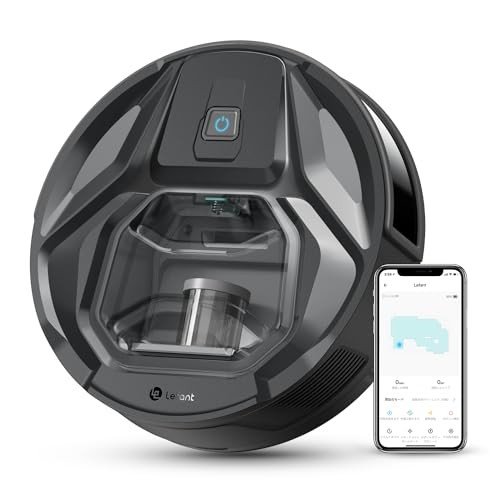15 Things You're Not Sure Of About Robotic Vacuum
The Rise of Robotic Vacuums: Transforming Home Cleaning
In the modern-day age, benefit plays an essential role in the way we manage our families. Among learn here that have revolutionized home cleaning is the robotic vacuum. These autonomous devices have actually gained enormous appeal for their capability to navigate through homes, choosing up debris and dust with very little human intervention. This short article provides an in-depth appearance at robotic vacuums, their functions, advantages, and considerations for potential purchasers.
Understanding Robotic Vacuums
A robotic vacuum is a compact, self-operating cleaning device created to autonomously clean floors. Running within a pre-programmed pattern or path, they use different sensing units to navigate their surroundings, avoiding challenges and efficiently covering floor space. Robotic vacuums can be discovered in various models, each accommodating different cleaning requirements and environments.
Key Features of Robotic Vacuums
Feature
Description
Navigation System
Makes use of sensing units (like LIDAR, infrared, and electronic cameras) to map and browse a space.
Suction Power
Varies in between designs; vital for efficient cleaning on various surfaces.
Battery Life
Duration the vacuum can run before requiring a recharge, normally ranges from 60 to 120 minutes.
Dustbin Capacity
Size of the dust bin, influencing how typically it needs to be emptied, normally varies from 0.3 to 1 liter.
Smart Features
Includes scheduling, mobile phone integration, and voice command compatibility with devices like Amazon Alexa or Google Assistant.
Height and Design
Affects the ability to fit under furnishings; most robotic vacuums are around 3-4 inches high.
Benefits of Using Robotic Vacuums
Robotic vacuums use a myriad of benefits, boosting the lifestyle for users. Here are a few of the key benefits:
- Time-Saving: By automating the cleaning procedure, users can maximize time for other crucial activities.
- Consistency: Robotic vacuums supply routine cleaning schedules to maintain cleanliness, reducing dust accumulation.
- Accessibility: They can easily access tight areas under furnishings where traditional vacuums might struggle.
- Advanced Technology: Most modern-day models come geared up with innovative navigation and cleaning technologies for effective operation.
- User-Friendly: With mobile apps and voice controls, running robotic vacuums has actually never ever been simpler.
- Remote Monitoring: Many models enable users to monitor cleaning development and change settings from another location.
Factors to consider Before Purchase
While robotic vacuums can substantially improve home cleaning, possible buyers ought to know their restrictions and essential factors to consider:
- Cost: Robotic vacuums can vary extensively in cost, from budget-friendly options to luxury models with innovative functions.
- Cleaning Power: While reliable for light particles, they may battle with heavy dirt or carpets compared to traditional vacuums.
- Upkeep: Regular cleaning of the device itself (e.g., emptying dust bins, changing filters) is essential for optimum efficiency.
- Home Layout: Homes with intricate designs or great deals of challenges may require models with sophisticated navigation innovation.
- Battery Life: Consider the size of your home and whether the vacuum can complete its cleaning cycle without requiring a recharge.
Popular Robotic Vacuum Models
Different designs have actually emerged on the marketplace, each offering special functions and capabilities. Here's a take a look at some of the most popular robotic vacuums in 2023:
Model
Secret Features
Cost Range
Roomba s9+
Excellent suction power, self-emptying
₤ 999 – ₤ 1,199
Roborock S7
Mopping ability, wise mapping
₤ 649 – ₤ 749
Eufy RoboVac 11S
Affordable, slim style
₤ 199 – ₤ 299
Neato D8
Unique D-shape for corners, strong suction
₤ 499 – ₤ 599
Dyson 360 Heurist
Advanced mapping, powerful cleaning
₤ 999 – ₤ 1,200
Frequently Asked Questions (FAQs)
Q1: How do robotic vacuums work?
Robotic vacuums use sensing units and mapping technologies to navigate and clean floors. They typically have pre-set schedules and can return to their docking stations to charge when needed.
Q2: Do robotic vacuums tidy efficiently on carpets?
High-end robotic vacuums with strong suction capabilities are developed to deal with carpets. Nevertheless, for deep cleaning, a traditional vacuum might still be required occasionally.
Q3: How often should I utilize a robotic vacuum?
The majority of users find that running their robotic vacuum every day or every other day keeps their areas clean and manageable.
Q4: Can robotic vacuums be used on several surface areas?
Yes, many robotic vacuums are designed to transition perfectly in between floorings, carpets, tiles, and hardwoods.
Q5: Are robotic vacuums loud?
Typically, robotic vacuums operate at a lower sound level compared to standard vacuums. Sound levels can differ by design, so looking at user reviews might assist determine what to expect.
Q6: Is a robotic vacuum worth the financial investment?
This depends upon your lifestyle and cleaning habits. For hectic families or those seeking benefit, the financial investment in a robotic vacuum can considerably boost cleaning performance.
As innovation continues to advance, the vacuum market is progressively welcoming the benefit and development of robotic cleaning options. Robotic vacuums not just relieve users of regular cleaning tasks but also offer sophisticated features focused on making cleaning efficient and straightforward. Whether you are a long-time admirer of tech gadgets or merely looking for a way to preserve tidy floorings with very little effort, a robotic vacuum may show to be a worthwhile investment for your home.
